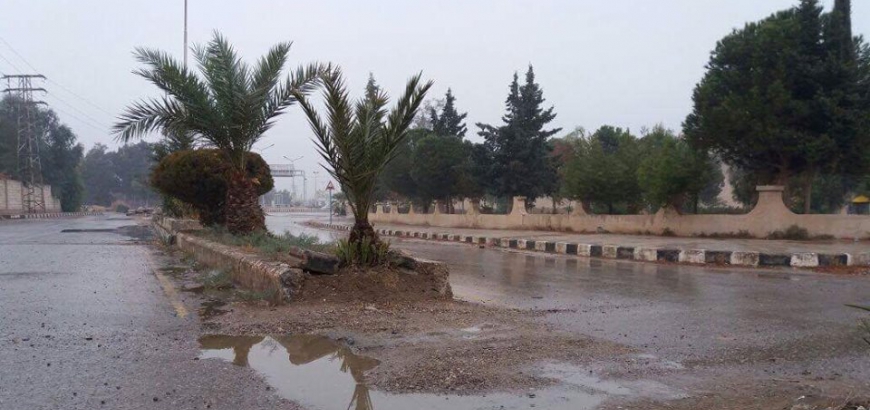After living for three years in the spotlight, media attention has been shifted away from the situation of residents inside the districts under regime control in Deir-ez-Zor, on which the Islamic State group had been imposing a siege.
Some of those who live there explain the reason as being related to political and propaganda agendas. This, they claim, is evidenced by the current absence of media coverage of the suffering of civilians in these areas, despite the lack of radical change in their living conditions compared with the situation during the time of the ISIS siege.
The testimony given by one of the women living in a district under regime control indicated that the situation of civilians after breaking the siege was worse than at the time of the siege. She said that goods had disappeared from the markets, being distributed in the halls opened by the regime at raised prices. But a larger issue is the difficulty in procuring the goods due to the heavy crowds in the distribution centers where residents are forced to stand for long hours, without even necessarily obtaining their desired goods.
The woman who asked not to be named told Alsouria Net that there was a state of major exploitation of civilians by those responsible for distribution of humanitarian aid offered for free, whereby nepotism and favoritism played a major role, in addition to the insults which civilians were subjected to by regime fighters and overseers and the militias who controlled the distribution process.
The woman’s testimony was confirmed by the journalist Fouad al-Khalaf who covers the situation of the Deir-ez-Zor districts under regime control through his Facebook page. He said that, “What is happening in the distribution halls with the traders in charge there is something shameful for all residents of Deir-ez-Zor, with the aim being to humiliate the people and to tell them that ‘you will starve and you will eat when and how we please’ … Therefore we say that the siege from inside is harder, worse and more bitter than from outside.” He said that one civilian had already died and another wounded as a result of unrest at the distribution center.
Khalaf quoted a message he received from a civilian inside these districts, saying: “They brought two shipments of eggs today to distribute them in the Wadi hall and the Qatarji center, there were so many broken the people didn’t get anything… I swear to God brother our situation is terrible.”
The irony which occurred after the regime announced that it had broken the siege on the blockaded city was that regime supporters from Deir-ez-Zor who have been displaced to other Syrian provinces asked not to be forced to return to their city on the excuse that it was not safe amid the worsening humanitarian situation, contradicting what had been reported and the false positions published about the life in these districts after the siege was broken.
In this context, the pro-regime Tawasul Deiri webpage published an appeal said to have been from the “people of Deir-ez-Zor displaced to other provinces” and directed to the health minister in the regime government, saying: “What you hear from your high representative (health director) in Deir-ez-Zor province is not true. The city is not safe, contrary to what you have heard. Shelling and death are still there in a major way, and hunger still consumes the people. There is no water and no basics of life, and the issue of electricity is still unclear. The city has seen some of the most violent forms of war and its future is unknown."
Comments around this issue supported the claims that the situation was insecure in the districts. Bashar al-Jassim said: “Deir-ez-Zor’s situation is not getting better. There is no water and no electricity. Mortars are still falling on people’s heads and there is no road between Deir-ez-zor and Hassakeh.”
This article was translated and edited by The Syrian Observer. Responsibility for the information and views set out in this article lies entirely with the author.


